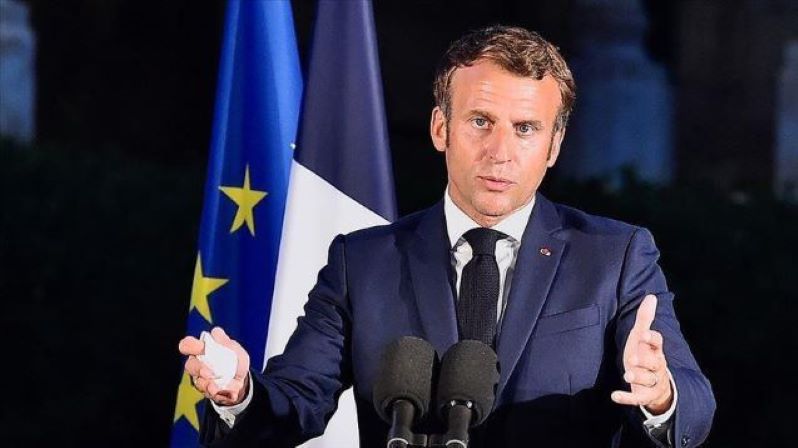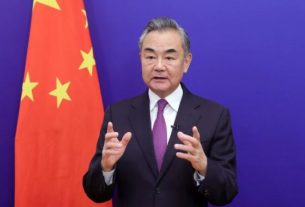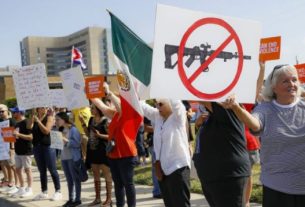Paris: French President Emmanuel Macron has expressed optimism that a recently brokered ceasefire agreement between Israel and Lebanon could serve as a catalyst for ending the ongoing conflict in Gaza. Speaking through a video message posted on social media platform X (formerly Twitter), Macron underscored the urgency of addressing the humanitarian crisis in Gaza and highlighted the role of “political courage” in achieving sustainable peace in the Middle East.
“This agreement should open the path for a ceasefire too long awaited, considering the incomparable suffering of the population in Gaza,” Macron stated. His comments came as the Gaza Strip continues to grapple with devastating civilian casualties, widespread displacement, and an escalating humanitarian emergency caused by prolonged hostilities.
Israel-Lebanon Ceasefire Agreement: A Brief Overview
The Israel-Lebanon ceasefire deal comes after weeks of escalating border clashes that threatened to spill into a larger regional conflict. Tensions along the Israel-Lebanon border have flared intermittently, fueled by Hezbollah’s retaliatory strikes against Israeli positions in solidarity with Gaza, and Israel’s response targeting suspected militant positions in Lebanon. Mediated with international involvement, the ceasefire aims to prevent further destabilization on Israel’s northern front while allowing diplomatic channels to focus on the broader regional crisis.
Macron’s Advocacy for Gaza Ceasefire
President Macron’s call for leveraging the Israel-Lebanon truce as a model reflects growing international pressure to halt the violence in Gaza, where ongoing conflict has resulted in thousands of civilian deaths and displacement. Humanitarian organizations report dire conditions, with hospitals overwhelmed, essential supplies dwindling, and millions of residents trapped amid relentless airstrikes and blockades.
Macron highlighted the disproportionate suffering of civilians in Gaza, calling the situation “incomparable” in its scope and severity. “This is a humanitarian catastrophe that cannot be ignored,” he stressed, urging global leaders to seize the moment to pursue a comprehensive ceasefire.
The Role of Political Courage in Middle East Peace
In his address, Macron pointed to the Israel-Lebanon agreement as evidence that diplomacy and decisive political action can yield tangible results, even in a volatile region. “Only political courage can provide everyone in the Middle East long-term peace and stability,” he remarked. His statement underscores France’s broader diplomatic stance, which emphasizes multilateral engagement and negotiation over military solutions.
The French President also reiterated his nation’s commitment to humanitarian assistance in Gaza, calling for unimpeded access to aid for those in dire need. France has been vocal in advocating for humanitarian corridors and has pledged additional resources to support relief efforts coordinated by the United Nations and other international organizations.
Challenges to a Gaza Ceasefire
While Macron’s comments highlight a pathway to peace, the situation in Gaza remains highly complex. Ceasefire negotiations face significant obstacles, including mutual distrust between Israel and Hamas, the governing authority in Gaza, as well as divergent international priorities. Israel has stated that its military operations aim to neutralize Hamas’ infrastructure and leadership in response to the group’s October 7 attacks, which killed over 1,400 Israelis. Hamas, in turn, frames its actions as resistance to decades of occupation and blockade.
The international community is deeply divided, with some nations prioritizing Israel’s security concerns and others focusing on the humanitarian plight of Palestinians. The United States has supported Israel’s right to self-defense while urging restraint to minimize civilian casualties. Meanwhile, Arab states, led by Egypt and Qatar, have intensified calls for an immediate ceasefire and a return to negotiations addressing the root causes of the conflict.
Broader Implications for Regional Stability
The Israel-Lebanon ceasefire holds symbolic and strategic importance in this volatile period. By stabilizing one front, the agreement reduces the risk of a wider regional war that could involve actors like Hezbollah, Iran, and other proxy forces. Macron’s framing of the deal as a potential “blueprint” for Gaza reflects an aspiration to extend its principles of de-escalation and dialogue to the broader Middle East.
However, experts caution that while the ceasefire represents progress, its extension to Gaza requires addressing longstanding grievances, including the Israeli-Palestinian conflict’s political, territorial, and humanitarian dimensions. Macron’s emphasis on “long-term peace and stability” signals recognition that any sustainable resolution must transcend temporary truces and address core issues, such as the status of Jerusalem, Palestinian statehood, and Israel’s security.
France’s Position in Middle East Diplomacy
France has historically played a proactive role in Middle Eastern diplomacy, often serving as a bridge between Western and Arab perspectives. Macron’s latest statements reflect France’s continued engagement in the region, balancing its alliance with Israel with a firm commitment to humanitarian principles and the rights of Palestinians.
In recent weeks, France has coordinated closely with European and Arab partners to amplify calls for a ceasefire in Gaza. Macron’s administration has also backed initiatives to bolster international efforts to address the humanitarian fallout, including financial aid for displaced populations and logistical support for humanitarian corridors.
Conclusion: A Window for Peace?
As Macron urges global leaders to capitalize on the momentum generated by the Israel-Lebanon ceasefire, the path forward remains uncertain. The suffering in Gaza underscores the urgent need for a humanitarian reprieve, while the broader conflict demands solutions rooted in justice, security, and mutual recognition.
Macron’s call for “political courage” serves as a reminder that the pursuit of peace in the Middle East requires bold leadership, sustained dialogue, and a willingness to confront entrenched divisions. Whether the Israel-Lebanon deal can indeed serve as a foundation for broader de-escalation will depend on the willingness of all parties to prioritize diplomacy over conflict in the face of immense human suffering.





